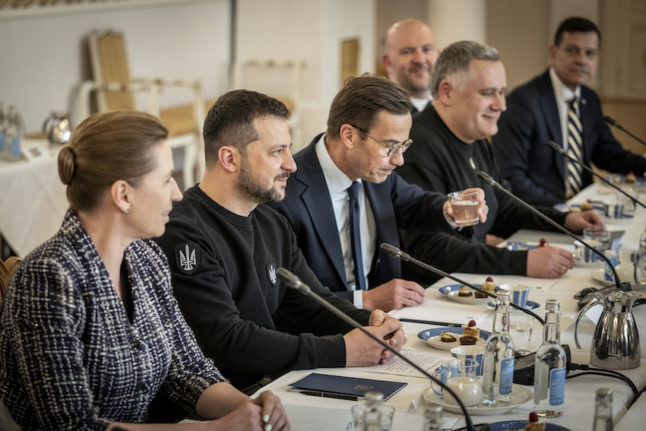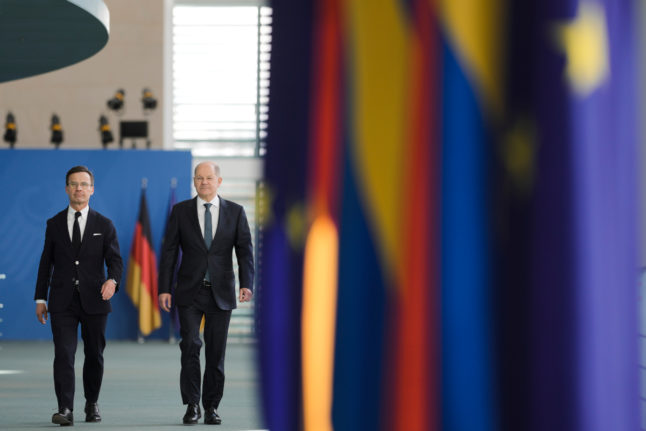After a joint press conference held between Zelensky and the leaders of the Nordic countries, Kristersson held a one-to-one meeting with Zelensky where they discovered arms deliveries, and Ukraine’s ambitions to join the EU.
“Swedish assault vehicles are saving lives in Ukraine, as President Zelensky himself put it,” Kristersson told Swedish media after the meeting. “We spoke a lot about that, and about the CV90, the lighter assault vehicles, which are now on the way to being delivered.”
At the press conference, Kristersson praised Zelensky for his and his country’s “decisiveness”, and said that Sweden and the other Nordic countries would help Ukraine carry out the necessary reforms to prepare for EU membership.
The meeting marked Zelensky’s first trip outside Ukraine since Russia’s invasion a year ago and was followed quickly afterwards by a visit to The Netherlands.
During his visit, Zelensky thanked the Nordic countries for their support but asked for more weapons to be delivered and for deliveries to be accelerated.
“We need to hurry, you don’t need our support in the future, but today,” Danish Prime Minister Mette Frederiksen said.
“It’s important that we can show Ukraine more support,” said Icelandic Prime Minister Katrín Jakobsdóttir.
The Nordic countries have so far delivered weapons worth a total of €4.4 billion to Ukraine and €1.5bn in humanitarian and civil aid.



 Please whitelist us to continue reading.
Please whitelist us to continue reading.
Member comments